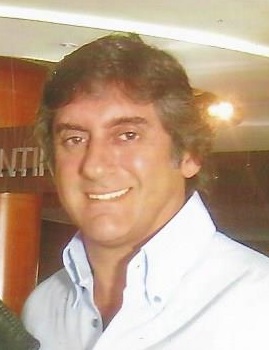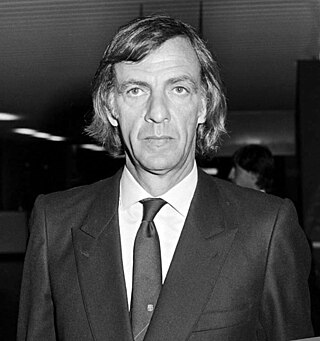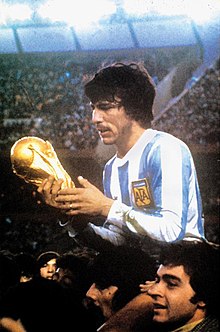
Diego Armando Maradona was an Argentine professional football player and manager. Widely regarded as one of the greatest players in the history of the sport, he was one of the two joint winners of the FIFA Player of the 20th Century award.

Edson Arantes do Nascimento, better known by his nickname Pelé, was a Brazilian professional footballer who played as a forward. Widely regarded as one of the greatest players of all time, he was among the most successful and popular sports figures of the 20th century. In 1999, he was named Athlete of the Century by the International Olympic Committee and was included in the Time list of the 100 most important people of the 20th century. In 2000, Pelé was voted World Player of the Century by the International Federation of Football History & Statistics (IFFHS) and was one of the two joint winners of the FIFA Player of the Century. His 1,279 goals in 1,363 games, which includes friendlies, is recognised as a Guinness World Record.

Gabriel Omar Batistuta is an Argentine former professional footballer. During his playing career, Batistuta was nicknamed Batigol as well as El Ángel Gabriel. Regarded as one of the best strikers of all time, he was named by Pelé in the FIFA 100 list of the world's greatest living players in 2004.

Mario Alberto Kempes Chiodi is an Argentine former professional footballer who played as a striker or attacking midfielder. A prolific goalscorer, he finished as La Liga's top goalscorer twice with Valencia where he amassed 116 goals in 184 league games. He is regarded as one of the greatest players of all time.

Enrique Omar Sívori was an Argentine-Italian football player and manager who played as a forward. At club level, he is known for his successful time with Italian side Juventus during the late 1950s and early 1960s, where he won three Serie A titles among other trophies; he also played for River Plate in Argentina and Napoli in Italy.

Alfredo Stéfano Di Stéfano Laulhé was a professional footballer and coach who played as a forward, regarded as one of the greatest footballers of all time. Nicknamed "Saeta Rubia", he is best known for his achievements with Real Madrid, where he was instrumental in the club's domination of the European Cup and La Liga during the 1950s and 1960s. Along with Francisco Gento and José María Zárraga, he was one of only three players to play a part in all five European Cup victories, scoring goals in each of the five finals. Di Stéfano played international football mostly for Spain after moving to Madrid, but he also played for Argentina and Colombia.

Enzo Francescoli Uriarte, nicknamed "El Príncipe", is a Uruguayan former footballer who played as an attacking midfielder. He is regarded as one of the best playmakers of his generation and as one of Uruguay's and South America's greatest ever players. He represented his nation at two FIFA World Cups, in 1986 and 1990, also winning the Copa América in 1983, 1987 and 1995.

Oscar Alfredo Ruggeri is an Argentine former professional footballer who played as centre-back. Nicknamed El Cabezón, Ruggeri achieved success at the international level with the Argentina national team, being part of the teams that won the 1986 FIFA World Cup, two editions of the Copa América and the 1992 FIFA Confederations Cup. At the club level, Ruggeri's most successful stint was with Argentine club River Plate, where he won the 1986 Copa Libertadores the 1986 Copa Interamericana and the 1986 Intercontinental Cup. Known for his rough style of play when marking opposing players and aerial ability, Ruggeri is considered one of the all-time best defenders to come out of Argentina. Following his retirement as a player, Ruggeri turned to managing, where he held posts in Argentina, Mexico and Spain. His last job as a manager was in 2006 with Argentine club San Lorenzo. Since then, Ruggeri went on to have a career on Argentine television, as commentator on football shows. He is currently a member of 90 Minutos de Fútbol, which airs on ESPN Argentina Latin America.

Ricardo Enrique Bochini is an Argentine former professional footballer who played as an attacking midfielder. He is nicknamed El Bocha. He spent his nearly twenty-year professional career at club Independiente, becoming one of the most emblematic players and the greatest idol in the history of the club. Bochini was a childhood idol of Argentine iconic footballer Diego Maradona.

José Manuel Moreno Fernández, nicknamed "El Charro", was an Argentine footballer who played as an inside forward for several clubs in Argentina, Mexico, Chile, and Colombia; for many who saw him play, he is regarded as one of the greatest players of all time, even among Diego Maradona, Pelé and Alfredo Di Stéfano, and was the first footballer ever to have won first division league titles in four countries.

Reinaldo Carlos Merlo is an Argentine football coach and former player, who played as a midfielder.

Norberto Osvaldo "Beto" Alonso is a former Argentine football midfielder who spent most of his career at River Plate, where he won 9 titles. He remains one of their most notable players. Alonso was regularly regarded as one of the best South American players in the world during the 1970s.

César Luis Menotti, known as El Flaco ("Slim"), was an Argentine football player and manager who won the 1978 FIFA World Cup as the head coach of the Argentina national team.

Ubaldo Matildo Fillol, nicknamed el Pato, is an Argentine football coach and former goalkeeper. He took part in the 1974, 1978 and 1982 World Cups representing the Argentina national team. He also played in the South American qualifiers for the 1986 World Cup, but he was finally not chosen for the final team that played in Mexico. He is usually considered to be one of the greatest goalkeepers and usually regarded as the best Argentine goalkeeper ever.

Alberto César Tarantini is an Argentine former professional footballer who played as a defender. He won the 1978 FIFA World Cup with the Argentina national football team. He played as a defensive left back early in his career, and later as a wing back.

Alejandro Javier Sabella was an Argentine football player and manager. Born in Buenos Aires, he began his playing career with River Plate in his home country before moving to England in 1978 to play for Sheffield United. He then had a spell with another English side, Leeds United, before returning to South America and representing Estudiantes, Grêmio, Ferro Carril Oeste and Irapuato.

Ángel Amadeo Labruna was an Argentine footballer and coach who played as a forward. With 323 goals scored in official matches, which include 294 league goals, Labruna is the 2nd all-time top scorer of Primera División after Paraguayan Arsenio Erico. Labruna was also part of the celebrated River Plate offense, nicknamed La Máquina, and he was considered one of the best South-American footballers of his generation. In his career, Labruna scored 564 goals.

Adolfo Alfredo Pedernera was an Argentine football player and coach. Nicknamed "El Maestro", he was widely considered to be one of the best world football players in the 1940s and one of the greatest Argentine players of all time. Pedernera was the natural conductor of both the famous River Plate team known as La Máquina, with whom he won several Argentine and South American titles, and the Millonarios team called Ballet Azul that won the Small Club World Cup in 1953 among many others Colombian titles.
Jorge Mario Olguín is a retired Argentine footballer who played as a defender. He played for Argentina when the team won 1978 World Cup.

Waldyr Pereira, also known as Didi, was a Brazilian footballer who played as a midfielder or as a forward. He played in three FIFA World Cups, winning the latter two.























